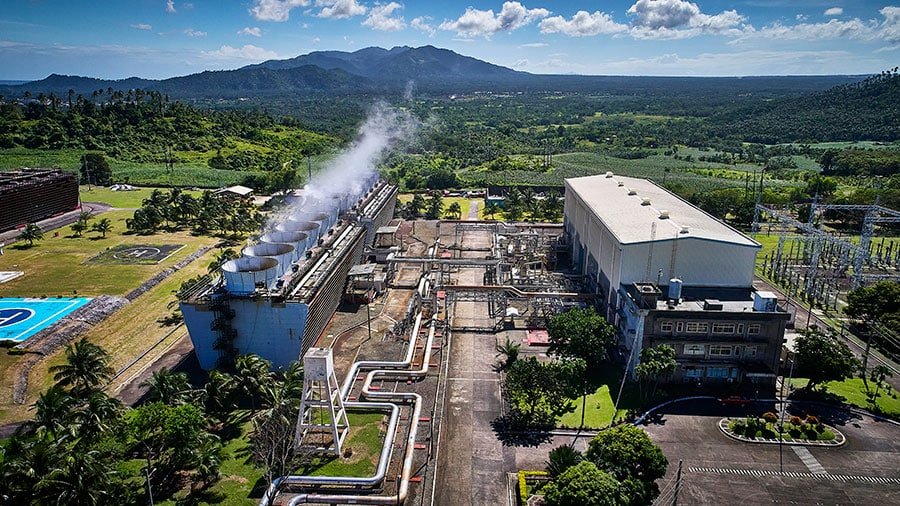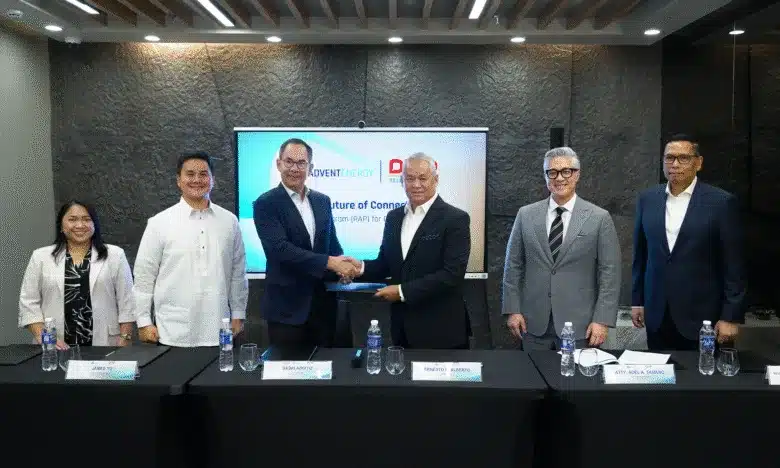
AP Renewables Cited for Disaster Resilience & Community Development Support
- April 23, 2025
The National Resilience Council (NRC) recently acknowledged AP Renewables Inc. (APRI), the geothermal arm of Aboitiz Power, and the Aboitiz Foundation (AF) for their active role in the Adopt-a-Municipality initiative.
APRI manages the Tiwi-Makban geothermal plants spanning Albay, Laguna, and Batangas. In 2019, APRI and the AF partnered with the local government of Tiwi, Albay, launching a multi-year initiative that included risk mapping, training programs, and technical support to boost disaster preparedness.
(Also read: Securing a Stable Power Supply Crucial for Lowering Electricity Prices in the PH)
About Adopt-a-Municipality
Working with the Department of Environment and Natural Resources (DENR) and the Office of Civil Defense, the project brings together government and private groups to help strengthen the ability of local governments to respond to and recover from disasters.
The Adopt-A-City initiative follows a three-phase framework—prepare, adapt, and transform—combining leadership training and science-based strategies. Unlike traditional aid models, the Adopt-A-Municipality program encourages direct collaboration between corporations, local governments, experts, and communities to reduce disaster risks and build long-term resilience.
The program enhances local governments’ leadership in five key areas—people, economy, infrastructure, environment, and security. Here, businesses work directly with communities and experts to integrate climate and disaster risk strategies into their core operations and social responsibility efforts.
As a result, corporate investments drive social impact while boosting sustainability by aligning with environmental, social, and corporate governance principles.
Tiwi, Albay, has been chosen as the pilot area for the program because it’s known for its vulnerability to powerful typhoons that wreak havoc on agriculture, infrastructure, and the economy.
(Also read: Are Electric Cooperatives Still Relevant Today?)
About the Tiwi Geothermal Power Plant
The Tiwi Geothermal Power Plant in Albay includes the 17-megawatt Tiwi Binary plant, which generates additional electricity by capturing leftover heat from the geothermal production process. This residual heat, previously unused before being reinjected into the earth, is harnessed to boost energy production.
Unlike solar and wind power, geothermal energy is not affected by weather. In 2023, while solar and wind plants operated at just 20% and 31% of their peak capacity, Philippine geothermal plants consistently ran at 65 to 71%, surpassing the 58 to 69% capacity factor of traditional coal plants.
Geothermal energy makes up just 9% of the Philippines’ power generation, while coal dominates with 63%. The main obstacles are high initial costs, exploration risks, and drilling challenges, with exploration alone consuming nearly half of project expenses. However, companies like APRI are undeterred and continue to invest in this local energy source.
Image Source: AP Renewables Inc.
Sources:
https://tribune.net.ph/2025/04/06/nrc-cites-ap-renewables
https://sendaicommitments.undrr.org/commitment/adopt-municipality-project-tiwi-albay
https://resiliencecouncil.ph/adopt-a-city-aac-program/
https://mb.com.ph/2025/4/2/aboitiz-power-receives-local-disaster-resiliency-commendation
https://aboitizpower.com/news/renewable-energy/tapping-earths-power-phs-reliable-clean-energy-source



